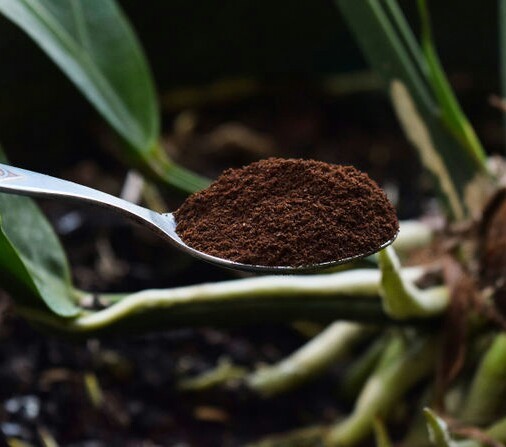9 Smart Reasons Why You Should Use Coffee Grounds In Your Garden

Coffee grounds have a lot to offer in the garden, so don’t just throw them away. Find out how to use them in the garden!
1. Beautify your lawn
If you like having a green yard you should mix coffee grounds with agricultural sand and add the blend to the grass. You should expect great outcomes. Coffee grounds circulate through air and fertilize the soil at the same time and are an extraordinary option to synthetic grass composts.
2. Worm compost
Worms like coffee grounds, so adding them in a worm container is a good idea. Vermicomposting, fertilizing the soil with worms, is an awesome choice if you need to compost but don’t have the space. However, you should not bolster the worms with an excessive number of coffee grounds.
3. Mulch
Hardwood mulch uses nitrogen in the soil as it decomposes, which implies that the plants receive less nitrogen. If you add coffee grounds, which as indicated by Missouri Botanical Garden are 21% nitrogen, you can keep wood mulch from tying up excessive nitrogen in the soil.Organisms in the soil will break down the coffee grounds more quickly than the mulch, giving extra nitrogen to the breakdown of the mulch itself.
4. Enhancing soil structure
Because of the high nitrogen content, adding too many coffee grounds directly to rich, loamy soil can be hazardous. But if you have an area of soil in urgent need of drainage and alteration, you can use coffee grounds. Washington State University says coffee grounds are a decent nourishment hotspot for worms, which are useful for the garden. The warms take the coffee grounds deep into the soil. This way they are providing nourishment and are enhancing soil structure.
5. Grow mushrooms
You can grow tasty organic mushrooms in coffee grounds and it doesn’t require a ton of effort. You simply require a couple of things including a lot of coffee grounds. Utilize one astounding food to grow another.
6. Deflect pests
If your garden gets pulverized by slugs, try utilizing coffee grounds as an obstacle. Slugs aren’t excessively glad about traverse an obstruction like that considering their smooth, slimy skin. Sprinkle a circle of coffee grounds around your plant and make sure to reapply as required.
7. Compost tea
Another choice is to soak coffee grounds in water overnight. The recommended proportion should be 1/2 cup coffee grounds to 1 and 1/4 gallon of water. Strain the fluid and utilize it as a natural fertilizer from time to time to give plants a lift.
8. Prevention of fungal rots and wilts
Washington State University points to research that claims coffee grounds help to suppress certain fungal rots and wilts. While more research should be done, you can have a go at scattering a thin layer of coffee grounds around plants, for example, cucumbers, beans, tomatoes, and spinach for the prevention of fungal rots.
9. Compost
If you add coffee grounds directly to your compost, you enrich it with nitrogen. But remember, high nitrogen materials should be adjusted with high carbon materials, for example, sawdust, sticks and twigs or dried leaves. If the compost starts to produce a stench, you have excessive amount of nitrogen and insufficient carbon. Thus, while coffee grounds are an incredible addition to any compost pile, make sure not to exaggerate.


